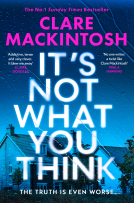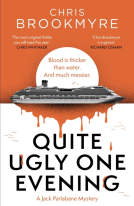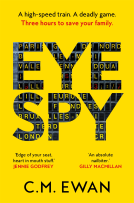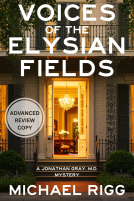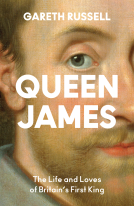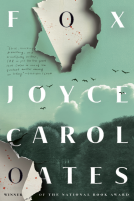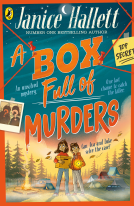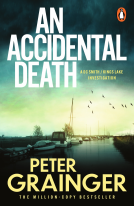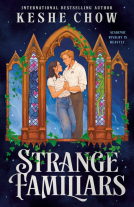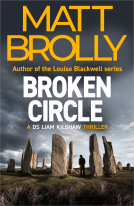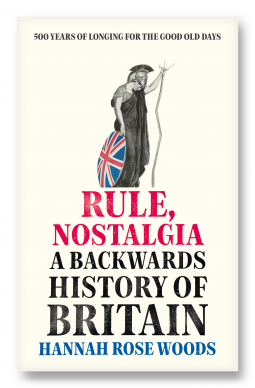
Rule, Nostalgia
A Backwards History of Britain
by Hannah Rose Woods
This title was previously available on NetGalley and is now archived.
Send NetGalley books directly to your Kindle or Kindle app
1
To read on a Kindle or Kindle app, please add kindle@netgalley.com as an approved email address to receive files in your Amazon account. Click here for step-by-step instructions.
2
Also find your Kindle email address within your Amazon account, and enter it here.
Pub Date 26 May 2022 | Archive Date 7 Jul 2022
Ebury Publishing, Penguin Random House | WH Allen
Talking about this book? Use #RuleNostalgia #NetGalley. More hashtag tips!
Description
'Our national story is so much stranger than we think: this book brilliantly insists that we look at it afresh' - James Hawes, bestselling author of The Shortest History of England
Britain is an island ruled by nostalgia, but nostalgia today isn't what it used to be...
Longing to go back to the 'good old days' is nothing new. For hundreds of years, the British have mourned the loss of older national identities and called for a revival 'simple', 'better' ways of life - from Margaret Thatcher's call for a return to 'Victorian values' in the 1980s, to William Blake's protest against the 'dark satanic mills' of the Industrial Revolution that were fast transforming England's green and pleasant land, to sixteenth-century observers looking back wistfully to a 'Merry England' before the upheavals of the Reformation. By the time we reach the 1500s, we find a country nostalgic for a vision of home that looks very different to our own. But were the 'good old days' ever quite how we remember them?
Beginning in the present, cultural historian Hannah Rose Woods takes us back on an eye-opening tour through five hundred years of Britain's perennial fixation with its own past to reveal that history is more complex than we care to remember. Asking why nostalgia has been such an enduring and seductive emotion across hundreds of years of change, Woods separates the history from the fantasy, debunks pervasive myths about the past, and illuminates the remarkable influence that nostalgia's perpetual backwards glance has had on British history, politics and society.
Rule, Nostalgia is a timely and enlightening interrogation of national character, emotion, identity and myth making that elucidates how this nostalgic isle's history was written, re-written and (rightly or wrongly) remembered.
Available Editions
| EDITION | Other Format |
| ISBN | 9780753558737 |
| PRICE | £20.00 (GBP) |
| PAGES | 384 |
Average rating from 39 members
Featured Reviews
 Nicky H, Reviewer
Nicky H, Reviewer
A history book written backwards?
The idea might sound bizarre, but in fact, in the case of Hannah Rose Woods’ excellent new book, it makes perfect sense. For this is a history of nostalgia itself. As Woods gradually takes us back from the 2020s to the Tudor era, it makes so much sense that a chapter covering the years 1914 to 1945 should follow the one focusing on the period spanning 1945 to 1979, that it soon begins to seem normal.
Indeed, there never seems to have been a time when Britain wasn’t taking a fond look back over its shoulder to savour the apparent security and certainties of the recent past. Many today might mourn the passing of the immediate post-war decades. But Woods is good at myth-busting and points out things were rarely as simple as they seem. From the perspective of the 1950s, 60s and 70s, Britain seemed, on the one hand, to be drifting into seemingly irreversible decline. We had lost our empire, been humiliated over Suez and as the 1960s moved into the 1970s, seemed to be perpetually lurching from one national crisis to another. This is all true enough. But at the same time as Harold Macmillan pointed out, “most of our people have never had it so good.” During his premiership and for nearly twenty years after it, lots of people had more money and free time than ever, acquiring cars, living in their own homes and going on foreign holidays for the first time. The year 1977 is often seen as marking something of a national low point, coming so soon after the 1976 IMF Crisis. But surveys from that year indicate Britons were then amongst the happiest peoples in the world. As the Canadian philosopher, Joni Michell had argued a few years earlier, “Don't it always seem to go, that you don't know what you've got till it's gone?”
There is more. Contrary to popular myth, lots of people were pleased to be moved out of their slums, most people who went to the New Towns didn’t regret it and some people were never happier during their entire lives than when the Nazis were bombing them during the Second World War.
In short, this is an enjoyable and well written book, packed with insights. You’ll be sure to remember it fondly, once it’s all over.
 Jill R, Reviewer
Jill R, Reviewer
This is a fascinating look at collective national nostalgia and how each period of our history looks back on another age as the “Good Old Days”. The author explains how nostalgia is a comfort during troubled times and so we tend to only remember the good parts. She then sets out the actual history of Britain and how each age has been misremembered or often manipulated for political ends. What struck me was that in each age examined, the issues social commentators felt had declined in their age and were better in the old days were all pretty much the same and quite often concerned disruption to the social hierarchy. The exploration of the use of nostalgia as propaganda was particularly thought-provoking. I wasn’t sure about the section on historical fiction painting a rosy picture of the past. I’m sure some of it does but most of the historical fiction I read show how brutally ordinary people were treated and makes me feel relieved I’m alive now.
Thanks to Ebury Publishing, Penguin Random House and NetGalley for the review access.
 Librarian 431790
Librarian 431790
It's an interesting and thought provoking book, perfect for this age when nationalisms and populisms are looking back to mythical past gold ages.
As a matter of fact this already happened a couple of millenia ago when Romans living in the imperial age looked back at the Republican age as the golden one.
I loved this books because there's a lot of myths about Britain past ages and the author did an excellent jobs in debunking them and picturing a more realistic image.
Well researched and well told.
Highly recommended.
Many thanks to the publisher and Netgalley for this ARC, all opinions are mine
 Tracey J, Reviewer
Tracey J, Reviewer
A really interesting book for history lovers. It' snot the sort of book you'd read from cover to cover as it's a lot of information to take in, but it's a fascinating read about the obsession almost with nostalgia and the "good old days" which really weren't all that good, we just have a romantic rose-tinted memory of them. Very interesting links to politics and modern day.
